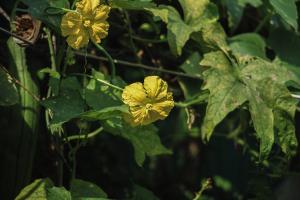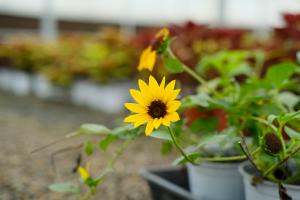Is Mint a Good Companion Plant?
When it comes to gardening, companion planting has become a popular technique used to improve the overall health and yield of crops. Companion planting involves growing different plants together that benefit each other in some way. While some plants can be harmful to their companions, there are others that can be a great help. In this article, we will explore the benefits of mint as a companion plant and whether it is a good choice for your garden.
Benefits of Mint as a Companion Plant
Mint is a versatile herb that can be grown in a variety of settings, from containers to vegetable gardens. It is also known for its many health benefits and culinary uses. But did you know that mint can also be a great companion plant for other crops? Here are some of the benefits of growing mint alongside other plants:
Insect repellent: Mint is a natural insect repellent, making it a great companion plant for vegetables that are susceptible to pests. Planting mint around tomatoes, peppers, and other plants can help keep pests at bay.
Attracting beneficial insects: While mint repels harmful insects, it also attracts beneficial ones like bees and butterflies. These pollinators can help increase the yield of your crops.
Improving soil health: Mint has deep roots that help break up compacted soil and improve drainage. It also releases essential oils that act as a natural herbicide, suppressing the growth of weeds.
Complementing flavors: Mint's aromatic scent and fresh flavor can complement the flavors of other herbs and vegetables. For example, planting mint with tomatoes can enhance the flavor of both plants.
When to Avoid Planting Mint
While mint has many benefits as a companion plant, there are certain situations where it may not be the best choice. Here are some circumstances to consider before planting mint:
Invasive tendencies: Mint is known for its invasive tendencies and can quickly take over a garden bed if left unchecked. If you're worried about your mint spreading too much, it's best to plant it in a container or grow it in a designated area of your garden.
Incompatible plants: Mint is not a good companion plant for all crops. For example, it can hinder the growth of beans, which prefer a more alkaline soil pH. Mint is also not recommended to be grown with parsley or chives as it may affect their flavor.
Root competition: Mint has a deep root system that can compete with other plants for water and nutrients. If you're growing mint alongside other plants, make sure to give them enough space or plant them in a container so they don't have to compete with the mint's roots.
Conclusion
Mint can be a great companion plant for many vegetable crops. Its insect-repelling properties, ability to attract beneficial insects, and soil-improving abilities make it a valuable addition to any garden. However, it's important to keep in mind that mint can be invasive and may not be compatible with all plants. As with any companion planting strategy, it's best to do your research and plan accordingly to ensure the best results for your garden.

 how many times do yo...
how many times do yo... how many planted tre...
how many planted tre... how many pine trees ...
how many pine trees ... how many pecan trees...
how many pecan trees... how many plants comp...
how many plants comp... how many plants can ...
how many plants can ... how many plants and ...
how many plants and ... how many pepper plan...
how many pepper plan...































